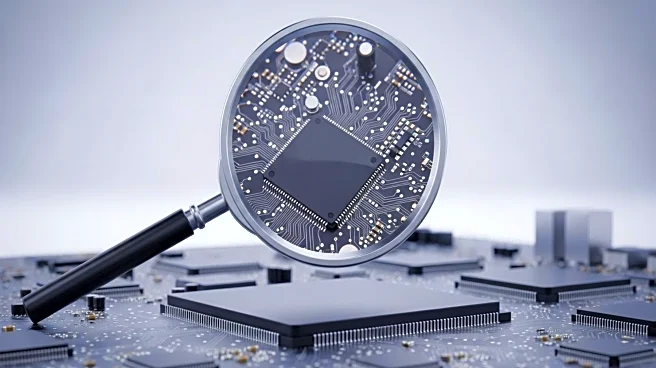What's Happening?
CNET has published an article detailing the importance of knowing the graphics processing unit (GPU) in your computer, especially when troubleshooting performance issues or assessing the capability to run certain software or games. The GPU is a critical component responsible for rendering visuals on the screen, and identifying it can help determine if it is the source of slow or laggy performance. The article provides a step-by-step guide on how to find the GPU using the Device Manager and Task Manager on a functioning computer. For computers that won't turn on, it suggests checking the laptop model number online or inspecting the desktop's internal components for a label on the GPU itself.
Why It's Important?
Understanding the specifications of your GPU is crucial for users who engage in gaming or creative work such as video editing, as it directly impacts the computer's ability to handle demanding tasks. Identifying the GPU can also aid in troubleshooting performance issues, potentially saving users from unnecessary upgrades or purchases. This knowledge empowers users to make informed decisions about hardware upgrades and software compatibility, ultimately enhancing their computing experience and efficiency.
What's Next?
Users who discover their GPU is underperforming may consider adjusting software settings or upgrading their hardware. CNET advises against immediately purchasing new equipment without first diagnosing the root cause of performance issues. Users are encouraged to explore software optimizations and settings adjustments before deciding on hardware upgrades. Additionally, third-party tools like TechPowerUp GPU-Z can provide detailed information about the GPU, assisting users in making informed decisions.
Beyond the Headlines
The article highlights the broader implications of understanding computer hardware, emphasizing the importance of self-sufficiency in technology management. By educating users on how to identify and assess their GPU, CNET contributes to a more tech-savvy consumer base capable of navigating the complexities of modern computing. This knowledge can lead to more sustainable technology use, reducing electronic waste through informed upgrade decisions.









